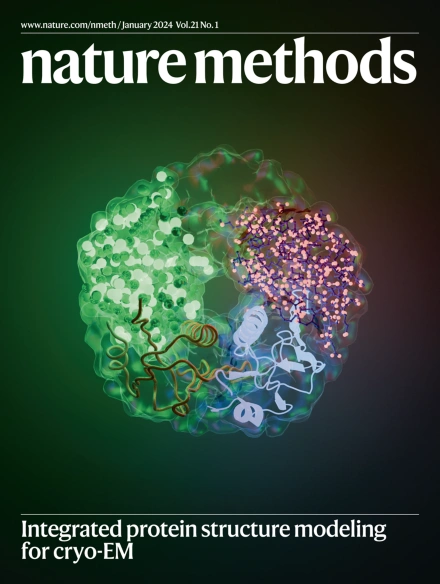Functional phenotyping of genomic variants using joint multiomic single-cell DNA–RNA sequencing
IF 32.1
1区 生物学
Q1 BIOCHEMICAL RESEARCH METHODS
引用次数: 0
Abstract
Genetic variants (both coding and noncoding) can impact gene function and expression, driving disease mechanisms such as cancer progression. The systematic study of endogenous genetic variants is hindered by inefficient precision editing tools, combined with technical limitations in confidently linking genotypes to gene expression at single-cell resolution. We developed single-cell DNA–RNA sequencing (SDR-seq) to simultaneously profile up to 480 genomic DNA loci and genes in thousands of single cells, enabling accurate determination of coding and noncoding variant zygosity alongside associated gene expression changes. Using SDR-seq, we associate coding and noncoding variants with distinct gene expression in human induced pluripotent stem cells. Furthermore, we demonstrate that in primary B cell lymphoma samples, cells with a higher mutational burden exhibit elevated B cell receptor signaling and tumorigenic gene expression. SDR-seq provides a powerful platform to dissect regulatory mechanisms encoded by genetic variants, advancing our understanding of gene expression regulation and its implications for disease. This study introduces SDR-seq, a droplet-based single-cell DNA–RNA sequencing platform, enabling the study of gene expression profiles linked to both noncoding and coding variants.

使用联合多组单细胞DNA-RNA测序的基因组变异的功能表型。
遗传变异(包括编码和非编码)可以影响基因功能和表达,驱动疾病机制,如癌症进展。内源性遗传变异的系统研究受到低效率的精确编辑工具的阻碍,再加上在单细胞分辨率下自信地将基因型与基因表达联系起来的技术限制。我们开发了单细胞DNA- rna测序(SDR-seq),可以同时分析数千个单细胞中多达480个基因组DNA位点和基因,从而准确测定编码和非编码变异的合子性以及相关基因的表达变化。利用SDR-seq,我们将编码和非编码变异与人类诱导多能干细胞中不同的基因表达联系起来。此外,我们证明在原发性B细胞淋巴瘤样本中,具有较高突变负担的细胞表现出升高的B细胞受体信号传导和致瘤基因表达。SDR-seq提供了一个强大的平台来剖析由遗传变异编码的调控机制,促进我们对基因表达调控及其对疾病的影响的理解。
本文章由计算机程序翻译,如有差异,请以英文原文为准。
求助全文
约1分钟内获得全文
求助全文
来源期刊

Nature Methods
生物-生化研究方法
CiteScore
58.70
自引率
1.70%
发文量
326
审稿时长
1 months
期刊介绍:
Nature Methods is a monthly journal that focuses on publishing innovative methods and substantial enhancements to fundamental life sciences research techniques. Geared towards a diverse, interdisciplinary readership of researchers in academia and industry engaged in laboratory work, the journal offers new tools for research and emphasizes the immediate practical significance of the featured work. It publishes primary research papers and reviews recent technical and methodological advancements, with a particular interest in primary methods papers relevant to the biological and biomedical sciences. This includes methods rooted in chemistry with practical applications for studying biological problems.
 求助内容:
求助内容: 应助结果提醒方式:
应助结果提醒方式:


